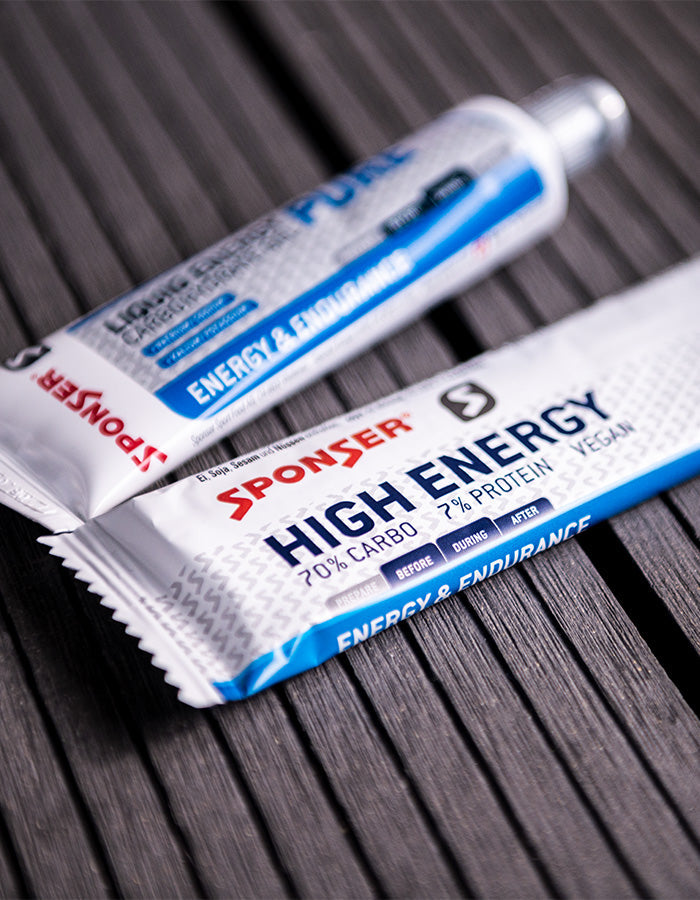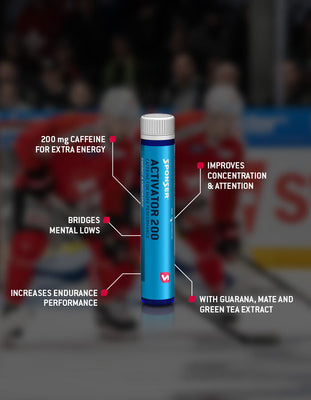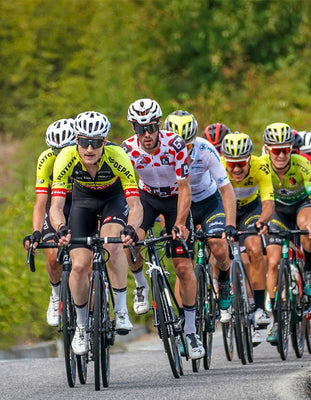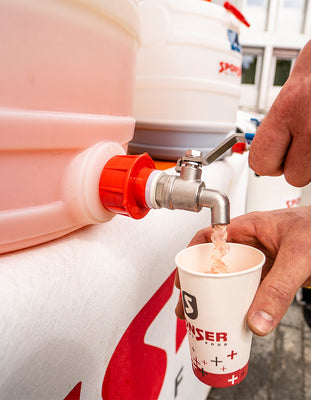
Regular carbohydrate ingestion from early on during physical activity reduces glycogen repletion and enhances time to exhaustion
Although the regular ingestion of carbohydrates early from the start of endurance activities is a common recommendation, it is often (too) long waited to begin with it. A recent study has now examined the effects of a regular intake of carbohydrates from shortly after the start of a 75-minutes treadmill run and the single intake of the same total amount (75 g) at the end on a subsequent run until exhaustion, and on the body's endogenous energy stores (muscle glycogen).
Although the muscle glycogen level of both intake profiles remained comparable, a significantly longer running time was achieved by regular carbohydrate intake: time-to-exhaustion increased on average by more than 9 min (105.6 min vs. 96.4 min)! These results suggest that an early, regular supply of carbohydrates during endurance exercise allows the body to preserve the muscular energy stores for longer, and to effectively use the carbohydrates ingested for energy utilisation. In practice, slightly longer intake intervals every 10-15 min, starting about 15 min into an endurance activity are probably a good advice.
Related articles
shop
» energy & endurance
on
» endurance performance
on
» performance optimisation
on
» science
Literature
Campbell Menzies et al. (2020): Frequent Carbohydrate Ingestion Reduces Muscle Glycogen Depletion and Postpones Fatigue Relative to a Single Bolus. Int J Sport Nutr Exerc Metab, 30:203-9, 2020.
Author: Remo Jutzeler
Head R&D SPONSER SPORT FOOD
Ing. Applied Food Sciences UAS
MAS Nutrition & Health ETHZ


















